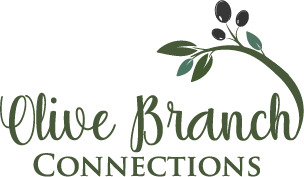When it comes to sustainability,
what piece of the puzzle are most nonprofits missing?
In the last decade, nonprofit organizations have made tremendous strides to shelter, feed, and cloth individuals in our communities who are facing overwhelming hardships. Some organizations even started supplementing recipients’ physical needs with in-house rehabilitation, mental health services, parenting classes, and job training. These highly scaffolded programs are revolutionary in developing recipients’ temporary autonomy, but unfortunately are not sustainable after services are completely withdrawn. This conundrum led us to question, “How can recipients stand on their own two feet after reentering their prior environments if they lack motivation to continue the arduous work of holding down a difficult job or fighting unhealthy habits?” and “What are recipients missing which hinders them from pushing forward on their own when the path ahead is daunting?”

We believe the answer is self-identity and individual purpose.
Sadly, prior abandonment, violence or abuse robs many recipients of the opportunity to develop their own identity before entering these programs. However, the good news is, it is never too late for an individual to gain a purpose and in turn progress exponentially on his or her path to autonomy.
How does Olive Branch Connections Bridge this Gap?
By partnering with homeless shelters and domestic violence nonprofits, our comprehensive team of family history researchers brings transformative ancestors’ stories to heavily burdened individuals across the nation.
What are the Facts?

A study conducted by researchers at Emory University discovered that children who were raised in homes where family history stories were shared had “higher levels of self-esteem, an internal locus of control (a belief in one's own capacity to control what happens to him or her), better family functioning, lower levels of anxiety, fewer behavioral problems, and better chances for good outcomes if a child faces educational or emotional/behavioral difficulties," (Marshall P. Duke, PhD, “The Stories That Bind Us: What Are the Twenty Questions?,” HuffPost, published 23 March 2013).
How do family history stories inspire self-esteem and discovery of individual purpose?
Holocaust survivor and psychotherapist, Dr. Viktor Frankl, discovered that there were three avenues for developing meaning in one’s life: love of others, personal achievement, and purpose in suffering (Man’s Search for Meaning, 1946).
Providently, these avenues are also the recurring themes of most hero ancestors’ stories. The primary focus of the stories we share with our program participants is love of family, hard work, and conviction in one’s ability to control his or her own attitude toward overwhelming hardships, particularly when one’s own afflictions can be used as a catalyst to relieve others’ suffering.
How is having a purpose not only motivating but life-sustaining?
Remarkably, Frankl not only cited individual purpose as an essential element for daily progress and mental health, but he even attributed his own sense of purpose to his survival in the Nazi concentration camps. Further, he observed that his fellow prisoners who sustained a reason to live were more apt to survive the atrocities of the war and concluded, “There is nothing in the world, I venture to say, that would so effectively help one to survive even the worst conditions as the knowledge that there is a meaning in one’s life.”

